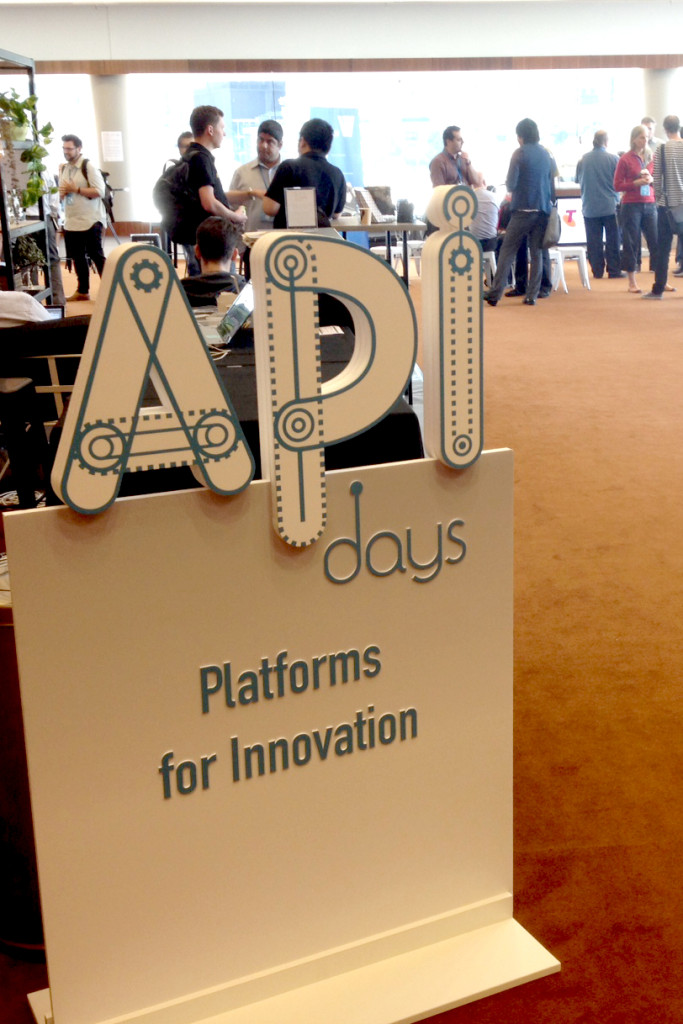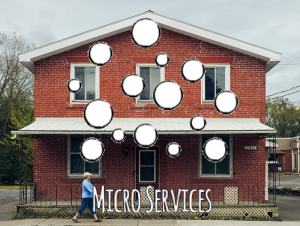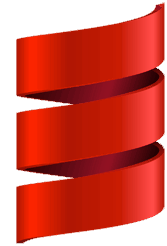On March 1 & 2, 2016, I attended APIdays Australia in Melbourne. (Actually, I also spoke! I’ll write more about that later.) I’m a chronic note-taker at conferences and I like writing my notes up afterwards both for my own reflection and so I can share them with others. Here are the key platform and API takeaways I’ve pulled out of my notes from #APIdaysAU16.
Innovation
 Innovation has been established as the main driver of economic change.
Innovation has been established as the main driver of economic change.
If people have to fill out an application to innovate, it’s not going to happen.
An innovation model for organisations based on the way ants achieve the colony’s goals:
- Powerful central mission with loose structure
- Maximise learning and sharing of learning
- Constant experimentation
- Freedom to look for the next horizon
Elon Musk: “Failure must be an option. If you’re not failing, you’re not experimenting enough.”
People in your organisation who think differently to others may well be key innovators. Don’t shut them out of the organisation.
Building Platforms
“Platform” is chiefly an idea to expose the core of your business in a way that can be used to compose new business ideas more easily, either by your own business or by others.
Continue reading

 Confession of a Chronic Futurist
Confession of a Chronic Futurist At Tyro,
At Tyro,  I covered a lot of ground in that talk, but something I didn’t get around to talking about was security. However, I believe that’s a really important topic to think about in microservice environments. It’s even more important than with a monolith, because in a service-oriented architecture you’re making a lot more of your system’s functionality directly exposed to the network, and that puts it in closer reach of would-be attackers, or “increases the attack surface” as a security pro would say.
I covered a lot of ground in that talk, but something I didn’t get around to talking about was security. However, I believe that’s a really important topic to think about in microservice environments. It’s even more important than with a monolith, because in a service-oriented architecture you’re making a lot more of your system’s functionality directly exposed to the network, and that puts it in closer reach of would-be attackers, or “increases the attack surface” as a security pro would say. Software Architecture Agility
Software Architecture Agility Beth Skurrie (
Beth Skurrie ( He started out with the obvious but perhaps too often forgotten observation: “You can’t defend your app unless you actually understand how the hacker’s technology works.”
He started out with the obvious but perhaps too often forgotten observation: “You can’t defend your app unless you actually understand how the hacker’s technology works.” He talked about a strategy for solving big problems described by famous theoretical physicist
He talked about a strategy for solving big problems described by famous theoretical physicist  The benefits of going functional are to get to code that is: Modular, Abstract, Composable.
The benefits of going functional are to get to code that is: Modular, Abstract, Composable. Last week I wrote about PaaS and Microservices, asking, “
Last week I wrote about PaaS and Microservices, asking, “